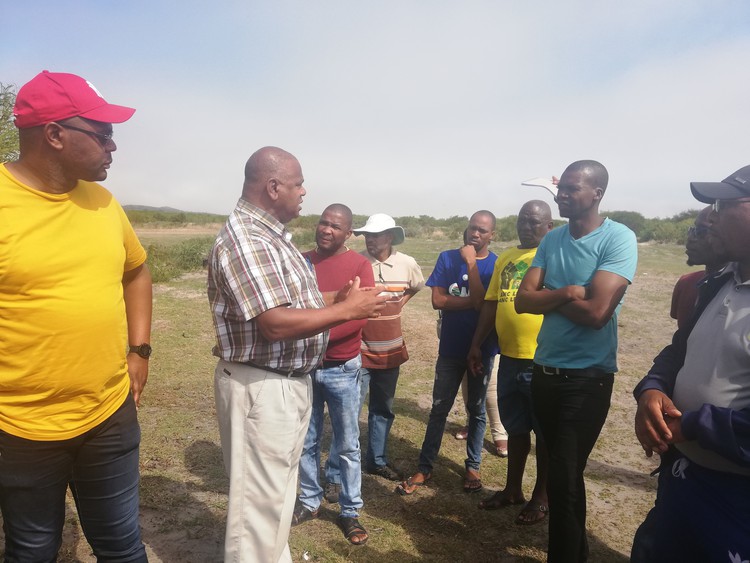Masiphumelele shack dwellers threaten to occupy land if City doesn’t give dates for new houses
Plato blames De Lille for making promises to community. De Lille says: “He’s talking nonsense.”
Masiphumelele residents have vowed to occupy a vacant City-owned property unless Mayor Dan Plato provides them with exact dates on when they can move onto the land.
This was said at a meeting held at the Masiphumlele community hall on Saturday. Plato, Mayco Member for Human Settlements Malusi Booi, and Mayco Member for Urban Development Felicity Purchase attended the meeting.
The land in question, Erf 5131, was bought by the City from SANParks in 2003, when Nomaindia Mfeketo was mayor. There have been ongoing discussions between residents and the City on its future. Part of the 10.8 hectare (equivalent to 11 rugby fields) land is a sports field, and another part of it will be the upcoming Phase Four housing project. This still leaves a large chunk of it unallocated and unoccupied.
It emerged that although the land belonged to the City, there was no environmental record of the decision to utilise the land. City officials said they were in the process of asking the Department of Environmental affairs to give the go-ahead for developing the land. The process could take a year or two.
Plato, Booi and other City officials went to see the land on Saturday. They were accompanied by community leaders and residents. But back in the community hall residents awaiting feedback were unhappy when told that the City and the community leaders had agreed to meet again in two weeks to discuss development plans.
Lonwabo Ntwasa, who has been living in a shack in a backyard in Masiphumelele for ten years, told Plato that they were expecting to be told when they could move onto the land. “The City has been holding meetings for years about the same thing. We have had enough of them now,” Ntwasa said.
“This is not the first, second or third time officials have gone to see that land. Every time we are near elections, officials come and see the land and tell us about studies which results we never see.”
Ntwasa and other Masiphumelele residents had attempted to occupy the land in 2017. Residents had demarcated plots and a few built shacks. But these were quickly removed by police.
“Do not come here to lie to us if you want our X’s on ballot papers,” said Ntwasa.
Another resident said she could no longer afford renting and was willing to move onto the land even if there were no services.
Residents called for the City to make the remainder of Erf 5131 available as an emergency relocation area for residents living in the informal settlement on Masiphumelele’s wetlands as well as the township’s backyarders, like Ntwasa. Meeting attendants even said they would be happy to cut down the trees on the land themselves.
“I am not against you getting a house. I am for you getting a house,” said Plato. He blamed Patricia de Lille, his predecessor, for making promises and leaving him to “douse the fires”.
Speaking to GroundUp, De Lille denied that she had made promises to the community. “He is talking nonsense,” the former mayor said in response to Plato.
De Lille said that she had in fact written to the provincial government, asking it to revoke its decision to protect the land for environmental purposes. She expressed doubt that it should take a year or two to complete the environmental impact assessment.
Plato warned that people who took part in an occupation of the site would “never see your brick and mortar houses”.
Booi said they would come back to the community on 27 March to present a plan.
Support independent journalism
Donate using Payfast

Don't miss out on the latest news
We respect your privacy, and promise we won't spam you.
Next: Frustrated by lack of services, shack dwellers block Baden Powell Drive
Previous: Australian mining manager drops defamation claims against journalist
Letters
Dear Editor
I'm sure that if the Eastern Cape was not such a disaster, many of the people living in informal settlement would have had no need to leave their perfectly good homes to come and live in shacks.
My problem with this is that in demanding an RDP house you are then owning two properties, one from your own sweat possibly, and another from taxpayers contributions.
© 2019 GroundUp.
This article is licensed under a Creative Commons Attribution-NoDerivatives 4.0 International License.
You may republish this article, so long as you credit the authors and GroundUp, and do not change the text. Please include a link back to the original article.

